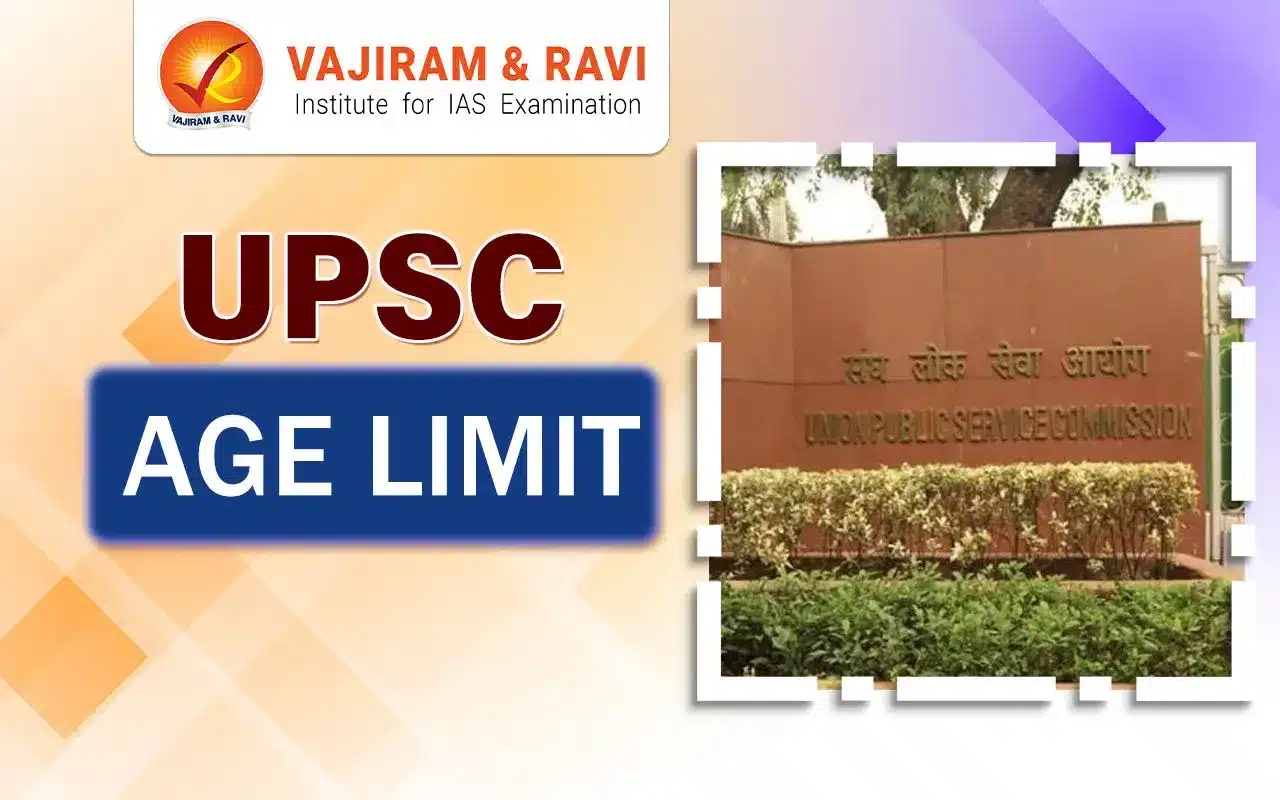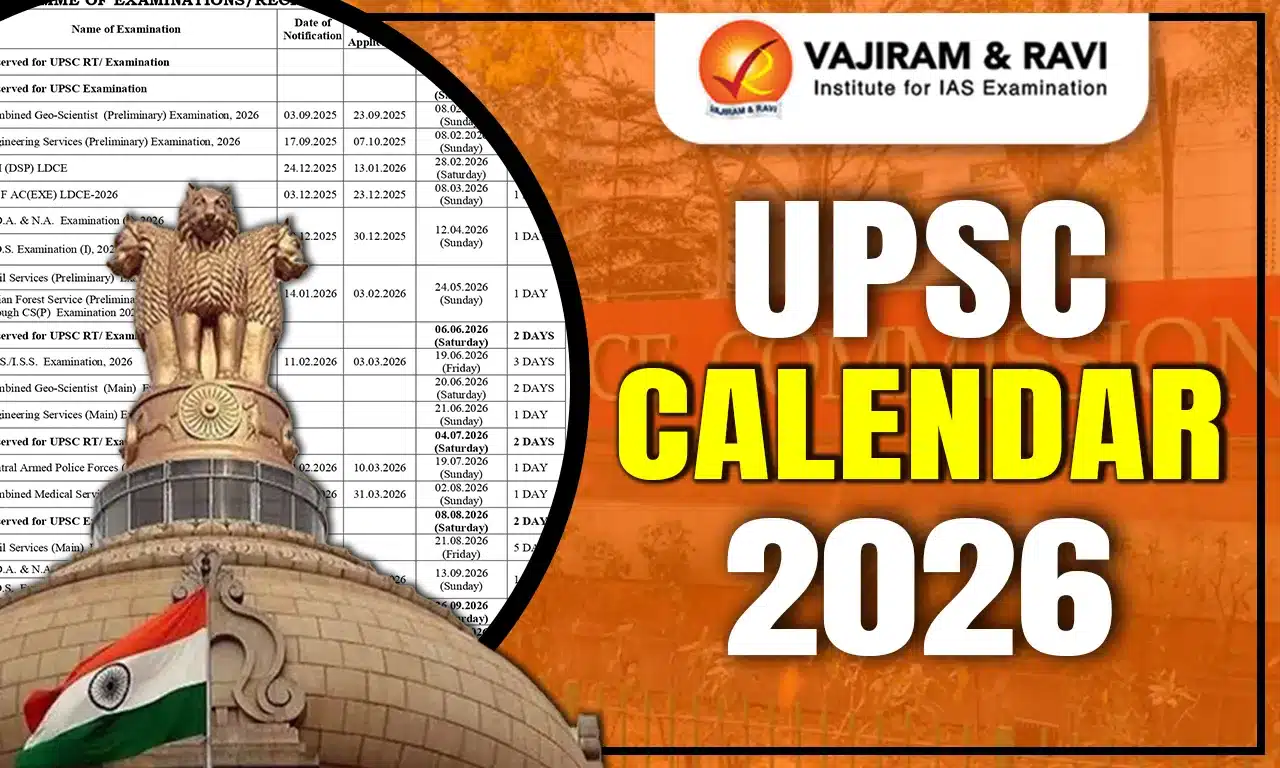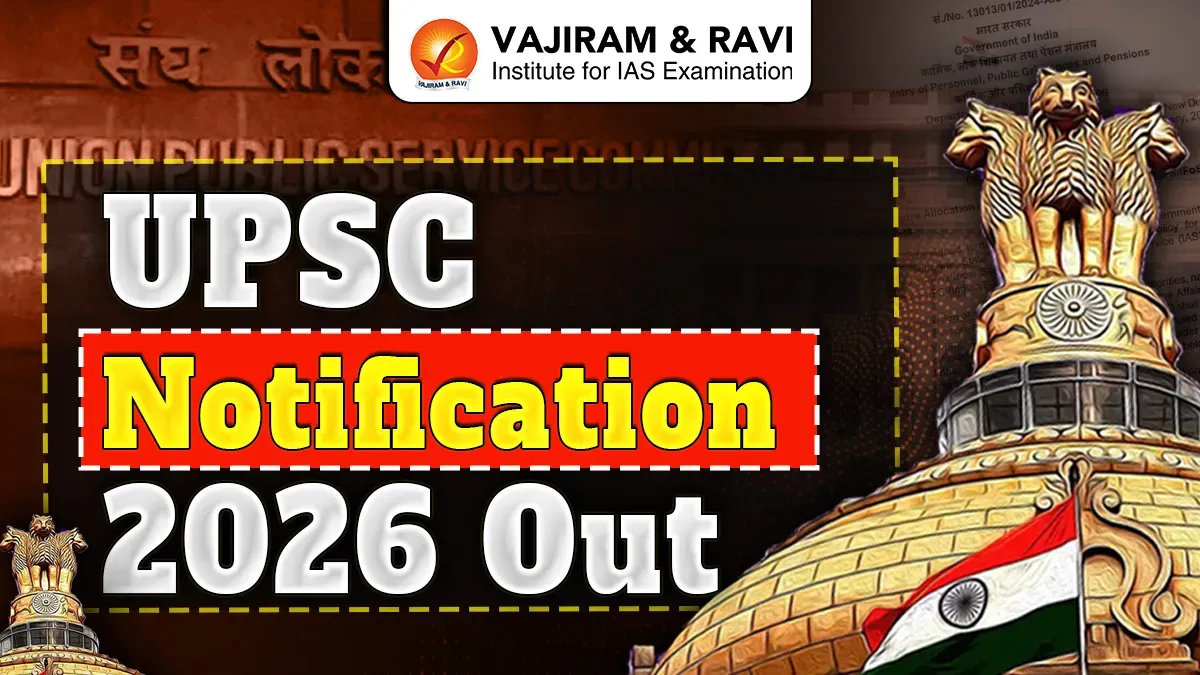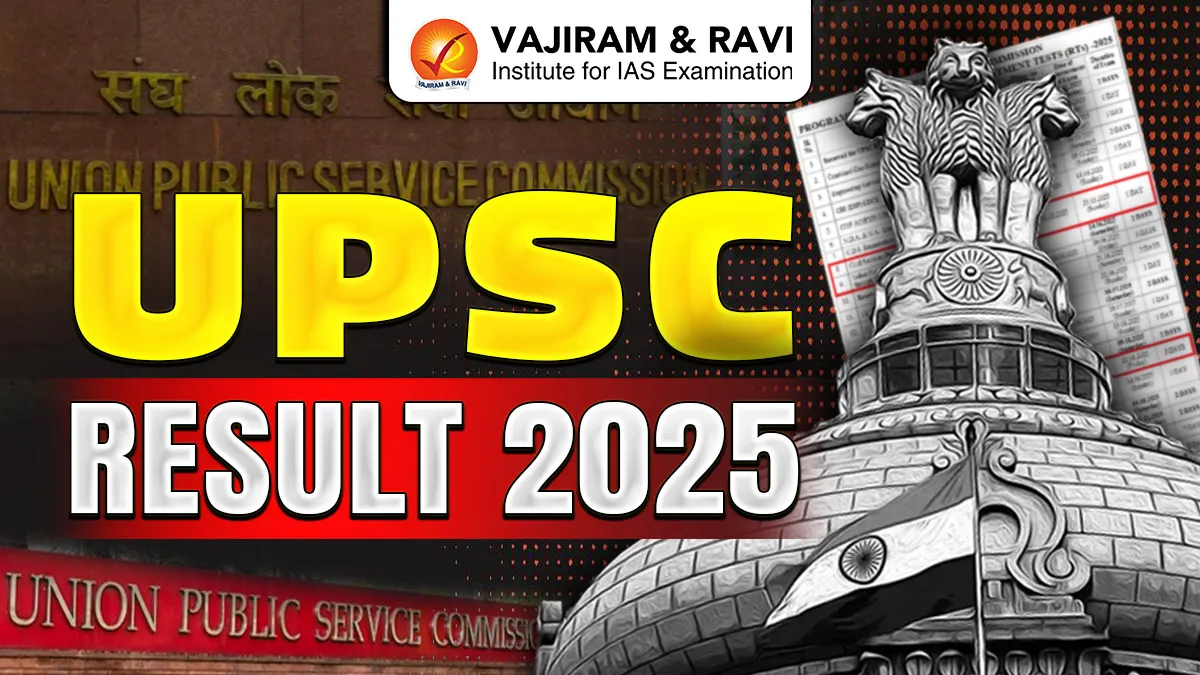To appear for the UPSC CSE Exam 2026 for Prelims and Mains, candidates must meet the eligibility criteria set by the Commission. For those targeting UPSC Exam 2026, it is essential to understand the requirements such as age limit, educational qualifications, and the number of attempts before starting their preparation.
This blog provides a comprehensive breakdown of the UPSC Age Limit 2026, covering the eligibility criteria, qualification requirements, and attempt limits for different categories to help aspirants plan strategically.
Also Check: UPSC Notification 2026
UPSC Eligibility Criteria 2026
To apply for the UPSC CSE Exam 2026, candidates must fulfill a defined set UPSC Eligibility Criteria 2026 laid down by the Union Public Service Commission. These conditions cover key factors such as nationality, age, number of attempts, educational qualifications, and physical standards. The basic criteria specify that the candidate must be an Indian national and should have graduated from a recognized university or be in the final year of their undergraduate program. In addition, the minimum age limit is 21 years to be eligible for the examination.
These eligibility norms apply to both the Prelims and Main stages of the exam. The aim is to ensure that only well-qualified and capable candidates, prepared to take on significant responsibilities in governance and public service, move forward in the UPSC Selection Process 2026.
| UPSC CSE Eligibility Criteria 2026 | |
| Age limit | 21 to 32 years |
| Age Relaxation |
OBC - 3 years SC/ST - 5 years |
| Minimum Educational Qualification | Graduation |
| Number of Attempts |
General/EWS - 6 OBC/PwBD - 9 SC/ST - unlimited |
| Nationality | Citizen of India |
UPSC Age Limit 2026
The UPSC age limit for the General category candidates is 21 to 32 years. In other words, for the UPSC Exam 2026 cycle, candidates should have been born not earlier than August 1994 and not later than August 2005. To ensure equal opportunity and inclusivity, the UPSC provides age relaxations to candidates from reserved categories. The details of category-wise relaxations are discussed below.
UPSC Age Relaxation 2026 Category Wise
The UPSC upper age limit mentioned above can be relaxed under certain circumstances:
| UPSC Age Relaxation 2026 Category-wise | |||
| Category | Minimum Age | Relaxation | Maximum Age |
| General | 21 Years | No Relaxation | 32 Years |
| OBC | 21 Years | +3 Years | 35 Years |
| SC/ST | 21 Years | +5 Years | 37 Years |
| PwBD (Blind, Deaf-mute, Orthopedically handicapped) | 21 Years | +10 Years | 42 Years |
| Ex-Servicemen (Discharged due to disability) General | 21 Years | +3 Years | 35 Years |
| Ex-Servicemen (Discharged due to disability) OBC | 21 Years | +6 Years (3+3) | 38 Years |
| Ex-Servicemen (Discharged due to disability) SC/ST | 21 Years | +8 Years (3+5) | 40 Years |
| Ex-Servicemen (After 5 years of service) General | 21 Years | +5 Years | 37 Years |
| Ex-Servicemen (After 5 years of service) OBC | 21 Years | +8 Years (5+3) | 40 Years |
| Ex-Servicemen (After 5 years of service) SC/ST | 21 Years | +10 Years (5+5) | 42 Years |
UPSC Qualification
The UPSC CSE Eligibility Criteria 2026 include the following Academic Qualifications:
- A candidate must possess a degree from Government-recognized University or an equivalent qualification.
- Candidates in their final year of graduation or awaiting results are also eligible to appear for the UPSC Prelims Examination. However, they must provide proof of having passed the required examination while applying for the UPSC Mains Examination.
- Candidates with professional and technical qualifications recognised by the Government as equivalent to professional and technical degrees are also eligible.
- Medical students who have passed the final year of MBBS but have not completed their internship can also apply for UPSC CSE. However, they need to submit a certificate of course completion from the concerned authority of the University/Institution along with their Mains Exam application.
UPSC Eligibility Nationality Criteria
For IAS, IPS and IFS:
- The candidate must be a citizen of India.
For All Other Services:
The candidate must be either:
- A citizen of India, or
- A citizen of Nepal, or
- A citizen of Bhutan, or
- A Tibetan refugee who came to India before 1st January 1962 intending to settle in India permanently, or
- A person of Indian origin (PIO) who has migrated from Pakistan, Burma, Sri Lanka, East African countries of Kenya, Uganda, the United Republic of Tanzania, Zambia, Malawi, Ethiopia, Zaire, and Vietnam, intending to settle in India permanently.
Candidates who are a citizen of Nepal, Bhutan and Tibetan Refugee must furnish a certificate of eligibility issued by the Government of India. They can appear for the exam before obtaining the certificate of eligibility, but they will receive the offer of appointment only after the Government of India issues the certificate.
Number of Attempts in UPSC
The number of attempts allowed for the UPSC Civil Services Examination varies based on the category of the candidate. Here are the attempt limits:
- General Category: 6 attempts until the age of 32 years.
- OBC Candidates: 9 attempts until the age of 35 years.
- SC/ST Candidates: Unlimited attempts until the age of 37 years.
- Persons with Benchmark Disability (PwBD):9 attempts (General & OBC) / Unlimited for SC/ST, up to age limits as per category
- EWS Category: 6 attempts until the age of 32 years.
Restrictions on Applying for the UPSC Exam
Candidates appointed to the IAS or IFS posts, based on the results of a previous examination and currently serving in either of these two services, will not be eligible to appear in the exams for that specific year.
Similarly, a candidate previously appointed to the IPS Position based on the results of a previous examination and currently serving as an IPS officer will not be eligible to select the IPS as an option in the exams for that particular year.
UPSC Physical Eligibility Medical and Physical Standards
It is essential to ensure that a candidate possesses the necessary physical fitness and capabilities required for the role of a Bureaucrat, as specified in the UPSC eligibility criteria.
- Candidates who successfully pass the UPSC CSE undergo several stages, including qualifying for a medical test. Upon clearing this specific test, candidates become eligible to be appointed as Civil Servants.
- Certain standard physical requirements such as weight, height, and chest measurements are necessary for the selection of officers, especially those being appointed as IPS officers for districts or Indian Railway services and the police services of Pondicherry, among others.
- However, non-technical fields do not have stringent physical standards, but candidates are expected to meet basic demands, such as being physically fit and mentally stable.
- These physical standards are determined according to the guidelines provided in Appendix-III of the Rules for Examination published in the Gazette of India Extraordinary dated February 02, 2023.
Last updated on February, 2026
→ UPSC Notification 2026 is now out on the official website at upsconline.nic.in.
→ UPSC IFoS Notification 2026 is now out on the official website at upsconline.nic.in.
→ UPSC Calendar 2026 has been released.
→ UPSC Final Result 2025 is expected to be released in the second week of April 2026.
→ Check out the latest UPSC Syllabus 2026 here.
→ Join Vajiram & Ravi’s Interview Guidance Programme for expert help to crack your final UPSC stage.
→ UPSC Mains Result 2025 is now out.
→ UPSC Prelims 2026 will be conducted on 24th May, 2026 & UPSC Mains 2026 will be conducted on 21st August 2026.
→ The UPSC Selection Process is of 3 stages-Prelims, Mains and Interview.
→ Prepare effectively with Vajiram & Ravi’s UPSC Prelims Test Series 2026 featuring full-length mock tests, detailed solutions, and performance analysis.
→ Enroll in Vajiram & Ravi’s UPSC Mains Test Series 2026 for structured answer writing practice, expert evaluation, and exam-oriented feedback.
→ Join Vajiram & Ravi’s Best UPSC Mentorship Program for personalized guidance, strategy planning, and one-to-one support from experienced mentors.
→ Check UPSC Marksheet 2024 Here.
→ UPSC Toppers List 2024 is released now. Shakti Dubey is UPSC AIR 1 2024 Topper.
→ Also check Best UPSC Coaching in India
UPSC Age Limit 2026 FAQs
Q1. Can a 2005 born apply for UPSC 2026?+
Q2. Will UPSC remove optional in 2026?+
Q3. Will UPSC increase the age limit in 2026?+
Q4. Who can give UPSC in 2027?+
Q5. Who is eligible for UPSC 2026?+
















